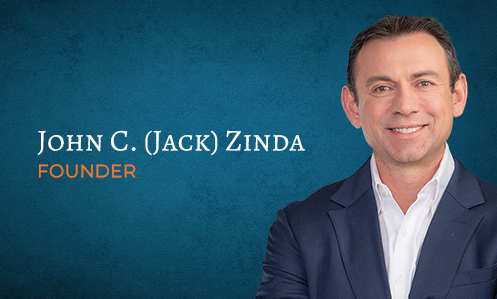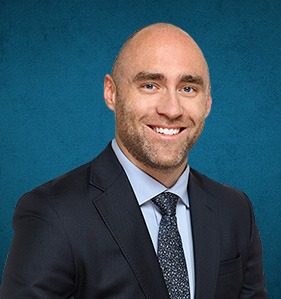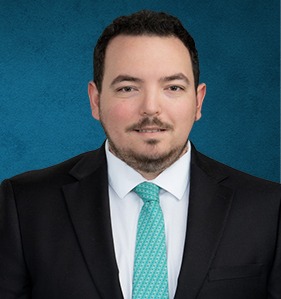CALL (512) 246-2224 FOR A FREE CONSULTATION WITH ONE OF OUR TEXAS SKI ACCIDENT LAWYERS
Although Texans may not be too familiar with skiing and snowboarding within the Lone Star State, plenty of residents have enjoyed the slopes while on vacation. States such as Colorado, New Mexico, and Arizona are popular destinations for people looking to ski or snowboard. Though these activities are exhilarating and fun, they are also a source of many injuries. It is thus important to understand your rights following a skiing or snowboarding accident. This article will discuss those rights, including how a ski resort may be liable for your injuries and what forms of compensation may be available following an accident, as well as when you should call Texas ski accident lawyers.
To learn more about your rights following a skiing or snowboarding accident, or to learn more about filing a claim, call Zinda Law Group at (800) 863-5312 to receive a free case evaluation with one of our Texas ski injury attorneys.
COMMON SKI AND SNOWBOARD ACCIDENTS SEEN BY TEXAS SKI ACCIDENT LAWYERS
Ski and snowboard accidents may result in minor injuries such as a sprained wrist. In some cases, these accidents can lead to severe injuries which may require months of rehabilitation. Listed below are examples of common causes of ski and snowboard accidents, as well as the injuries that may result from such accidents.
Faulty Equipment
In some cases, a ski or snowboard accident may be caused by defective equipment. For instance, a broken ski may not function properly, making the activity dangerous for you and those around you. A defective helmet may also do a bad job of protecting your head if you were to fall. In these cases, the party that provided or manufactured the equipment may face liability for your injuries.
To learn more about cases involving defective products, view our article on Product Liability Injuries.
Inexperienced Participants
Snowsport accidents and injuries can frequently be attributed to inexperience. An ambitious but unprepared skier may pose a risk for himself and for others by trying to do perform an unfamiliar task. When this happens, injuries may occur. Common injuries may include sprained muscles, fractured bones, or head and neck injuries.
Ski Lifts and Machinery
A ski resort is expected to properly maintain its ski lifts and other related machines. Resorts are also expected to have trained staff members to operate these types of machines. If a lift is improperly maintained or being operated by an inexperienced and untrained staff member, the risk of injury increases dramatically. If you have been injured due to a broken lift or due to the negligence of a lift operator, you may be able to sue the ski resort for your injuries.
CASE RESULTS
Common Injuries
- Knee sprains
- Fractured or sprained wrists
- Broken legs
- Head, neck, and spine injuries
- Shoulder dislocations
- Fractured or sprained ankles
To learn more about common injuries from ski accidents, check out our infographic.
HOW DOES A SKI ACCIDENT CASE WORK?
Ski Collisions
If you have been hit and injured by another person while skiing or snowboarding, you may be able to sue that other person. Because skiers and snowboarders have a duty to ski within their abilities and to carry themselves in a safe and responsible manner, a cause of action for negligence may exist if someone breaches one of the duties by acting recklessly or irresponsibly.
For instance, uphill skiers owe a duty to yield the right of way to downhill skiers. If an uphill skier fails to do so and collides with a downhill skier, the downhill skier may be able to sue the uphill skier for breaching this duty. The precise duties imposed upon skiers and snowboarders vary slightly from state to state.
If you have been injured in a collision with another skier or snowboarder, be sure to collect the other party’s contact information. In some cases, a person’s homeowner’s insurance policy will cover them for their fault in collision. Collecting the at-fault party’s information may thus simplify the compensation process.
Suing the Ski Resort
In some cases, it may also be possible to bring a lawsuit against the ski resort itself. The strength and viability of a claim against a ski resort depends on the laws of the state in which the accident occurred.
In general, a ski resort may be sued if it acted or failed to act in a safe and responsible manner. For instance, ski resorts are expected to mark trails and post certain warning signs. If a person was injured by a hazard which should have been marked, that person may have a cause of action against the ski resort. In some cases, ski resorts may also be held liable for providing defective equipment to its guests, or for failing to maintain equipment such as ski lifts.
SKI ACCIDENT COMPENSATION
In personal injury cases such as a skiing accident, if the alleged at-fault party is found to be liable for the harm suffered, the at-fault party may face the consequences by having to compensate the victim. This compensation is referred to as “damages” and comes in two broad categories: economic damages and non-economic damages.
Economic Damages
Economic damages are damages that can be accounted for, added up on paper and quantified. Examples of economic damages which may be available to the victim of a skiing or snowboarding accident include:
- Medical expenses
- Rehabilitation costs
- Lost income (present and future)
- Loss of earning capacity
- Property damage, if applicable
Medical bills may cover things such as the costs incurred by the victim for hospital stays, doctors’ appointments, pharmacy costs, and physical therapy. Lost income may include the compensation lost by the victim due to missed time from work. If the injury prevents or impairs the victim’s ability to work in the future, lost income may also include the victim’s loss in earning capacity.
Non-Economic Damages
Non-economic damages are intangible losses which generally cannot be added up on paper and quantified. Rather, non-economic damages are subjectively evaluated by a jury in a lawsuit. Types of non-economic damages which may be available to a skiing or snowboarding accident victim include:
- Physical pain and suffering
- Emotional distress
- Disfigurement and disability
- Loss of companionship
- Loss of consortium
Learn More: How to Calculate the Value of Case
GET HELP FROM THE SKI AND SNOWBOARD ACCIDENT LAWYERS AT ZINDA LAW GROUP
At Zinda Law Group, our personal injury attorneys have experience handling ski and snowboard accident claims. Our team is ready and waiting to fight for our clients after an accident. Our firm is able to provide clients with the knowledge and resources necessary to help address the concerns that come with being involved in an accident while out on the slopes.
If you would like to speak with an experienced attorney or learn more about filing a claim, call Zinda Law Group at (512) 246-2224 to receive your free case evaluation.
Meetings with attorneys are by appointment only.
FAQs
Can you sue someone for a ski accident?
In general, you may sue someone following a ski accident. However, the strength and viability of your case will depend on several factors. For instance, it is important to consider how the accident occurred. If the other party was acting negligently or recklessly before causing your injuries, then you may have a viable cause of action against that person. Because the success of your claim depends on several important factors, it may be a good decision to consult with a personal injury attorney before deciding whether to commence legal proceedings.
Can You Sue A Ski Resort?
Legal action against a ski resort may be pursued under certain circumstances. To best answer this question, it is important to consider the laws that regulate skiing and snowboarding activity. For instance, some states absolve ski resorts from liability that may arise from the reasonably obvious, expected, and necessary aspects of skiing or snowboarding. In these states, activities such as colliding with another skier may be considered an expected aspect of skiing. Thus, a ski resort may be free from liability if you are injured after colliding with another skier. Because these laws vary from state to state, consider consulting with a personal injury attorney to help determine whether a ski resort can be held liable for your injuries.
We’ve helped Ski Injury Victims from the following cities and more:
- Austin Ski Accident Lawyers
- Arlington Personal Injury Lawyers
- Amarillo Personal Injury Lawyers
- Brownsville
- College Station Ski Accident Lawyers
- Corpus Christi Personal Injury Lawyers
- Dallas Ski Accident Lawyers
- El Paso Ski Accident Lawyers
- Edinburg
- Fort Worth Ski Accident Lawyers
- Houston Ski Accident Lawyers
- Killeen Personal Injury Lawyers
- Laredo
- Lubbock Ski Accident Lawyers
- Midland
- Round Rock Ski Accident Lawyers
- San Antonio Ski Accident Lawyers
- Temple Ski Accident Lawyers
- Waco Ski Accident Lawyers
Our Awards
AWARDED TO JOHN C. (JACK) ZINDA BY THE NATIONAL TRIAL LAWYERS ASSOCIATION (2016-2020)
AWARDED TO JOHN C. (JACK) ZINDA (2009, 2011-2012, 2014-2021), & NEIL SOLOMON (2020-2021)
AWARDED TO JACK ZINDA (2016-2020)
LIFETIME MEMBERS JOHN C. (JACK) ZINDA


























